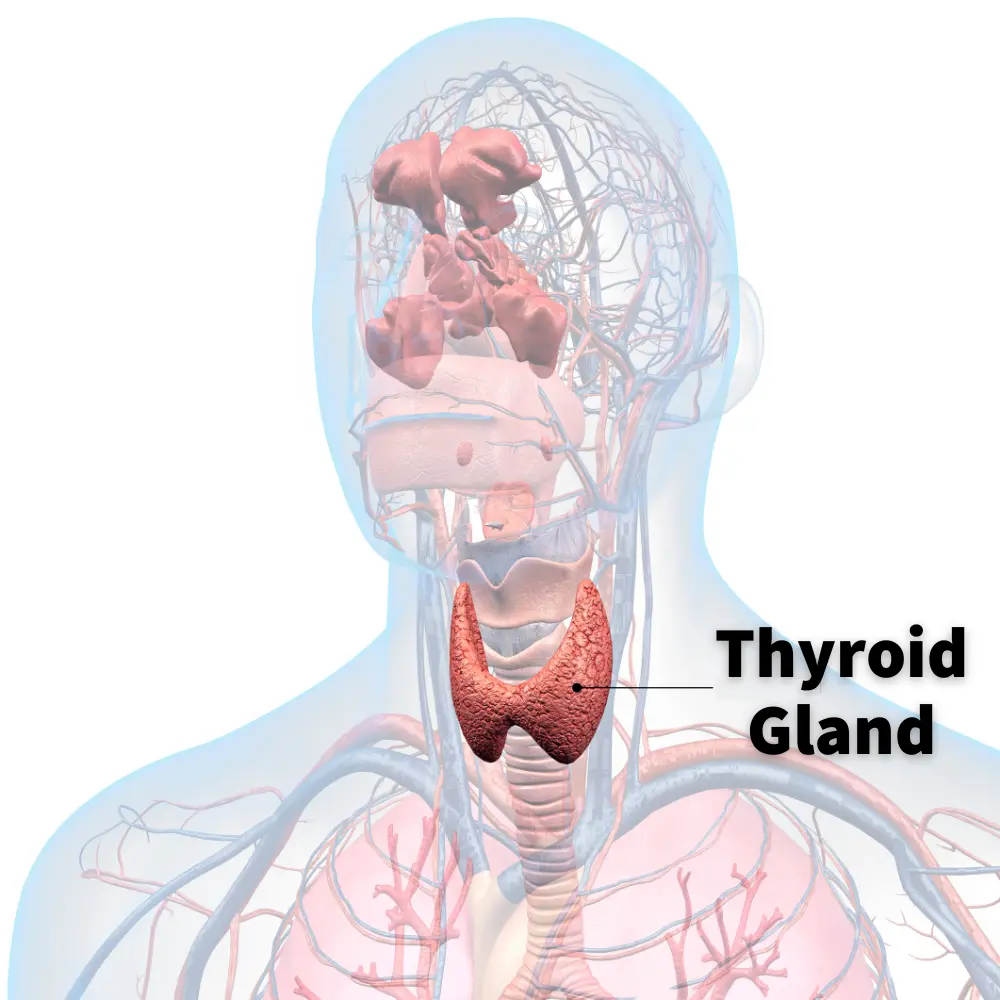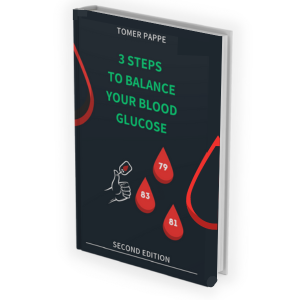
How the thyroid gland regulates all body systems
What is the thyroid gland?

The thyroid or thyroid gland is one of the most important glands in the endocrine system. It is made up of two lobes, that separated by a central isthmus. The hormones that the thyroid gland secrets have impact on every system of the body.
Too often the way to implement optimal treatment for the thyroid is not fully understood, both by therapists and patients. The thyroid plays a central role in maintaining hormonal balance of our body, especially by regulating heat and temperature in the body.
It is not a coincidence that in nature temperature and pace are affected one from the other high rate or pace equals heat and low rate or pace equals cold. Thyroid is regulating both of them, temperature and rhythm.
Table of contents:
Thyroid hormones
The thyroid synthesizes thyroid hormones- T3 and T4 by fixing iodine on a protein, and TSH has the role of stimulating the thyroid to function. Thyroid hormones used by every cell of our body and they are essential for life.
The thyroid gland secrets these hormones into the bloodstream and they take part in daily regulation of the various systems in the body such as: digestive system, nervous system, vascular system, reproductive system and also mental health and mood. Thyroid hormones even take part in DNA synthesis, which emphasizes how necessary they are for our existence as the complex biological beings that we are.
When the thyroid gland works in its natural form and in homeostasis, the body functions as it was designed to function, that is, in an optimal way. When the thyroid gland is out of balance, weather it is not secreting enough hormones and weather it secrets hormones in excess. In both cases, natural activity of every system and every organ in the body is affected. Over time, such an imbalance may lead to a wide variety of medical problems, for most of which conventional medicine has no adequate solution. These medical problems over time can worsen quality of life. Sometimes after a long period of neglecting thyroid imbalance, medical treatment will be necessary. In order to avoid a situation where medical treatment is necessary, it is important to know how thyroid gets out of balance and the natural ability of the thyroid gland to recover on its own, given the right conditions. In my opinion, drug treatment should be the last resort, only if there is no other way to re balance the thyroid gland and body.
When does the thyroid gland go out of balance?
Any change in the activity level of the thyroid gland will create a chain reaction that will reach the various organs of the endocrine system, and this can lead to further consequences in other systems of the body. In situations where the thyroid gland does not function properly, meaning that it is either overactive (hyperthyroidism) or underactive (hypothyroidism), the rest of the body’s systems will get affected respectively.
Thyroid disorders:
There are different types of thyroid disorders, including:
Hyperthyroidism: an overproduction of thyroid hormones.
Graves’ disease: an autoimmune disease that causes hyperthyroidism.
Hypothyroidism: an underproduction of thyroid hormones.
Hashimoto’s disease: an autoimmune disease that causes hypothyroidism.
Goiter: this is an increase in the volume of the thyroid, most often caused by a lack of iodine.
Thyroid cancer: this is a rare type of cancer.
The two most common disorders are hypothyroidism and hyperthyroidism, some of the main symptoms of which are listed below.
The symptoms of these conditions will be manifested in a variety of ways such as: problems with the digestive system, constipation, excessive irritability, tremors in the body, sleep problems, drastic weight changes, increased sweating and a variety of other phenomena and symptoms that harm the quality of life and health and require immediate intervention, such as: drastic change in the food we eat, in stress management , in quality of sleep and sometimes some medical treatment will be required.
Hypothyroidism (underactive thyroid gland)
In hypothyroidism, the thyroid gland does not produce enough triiodothyronine (T3) and thyroxine (T4). The production of thyroid-and TSH might also get out of balance which indicats the brain is trying to change the thyroid activity, to enhance the thyroid production of T3/T4 in order to stimulate their production. This type of thyroid disorder is more common in women, especially around the age of menopause, but hypothyroidism can occur at any age and can also affect men.
Symptoms of Hypothyroidism:
Severe fatigue, when thyroid hormones drop, the functioning of the body slows down. Metabolism, heart rate, blood circulation and more mechanisms of the body slow down and energy levels plummet, which can lead to a feeling of exhaustion.
Other symptoms are: brain fog, sensitivity to cold, constipation, loss of libido, avoiding social situations, low blood pressure, hair loss, high cholesterol than normal and sometimes obesity. When the thyroid does not produce enough hormones, the metabolism is slowed down: we then no longer burn as many calories and we tend to gain weight. Weight gain can also be due to fluid retention because low thyroid hormone levels impact kidney function by decreasing salt and water excretion in the urine.
Thyroid hormones play also an important role in mental health. When these hormones are not present enough, depression can occur. Thyroid hormones help regulate the hypothalamic-pituitary-thyroid axis, which is involved in regulating emotions, moods, and behaviors. That it is why symptoms of depression or avoidance of social situations may occur.
Hyperthyroidism (overactive thyroid gland)
In hyperthyroidism, the thyroid gland produces too much thyroid hormones. This causes an acceleration of the entire organism and thus over “boosting” it activity.
Symptoms of Hyperthyroidism:
Thyroid hormones in excess accelerates the metabolism, which induces weight loss.
Other symptoms are accelerated heart rate at rest, high blood pressure, tremors, red palms, excessive sweating, warm skin and sometimes an enlarged thyroid gland.
It is important to remember that when the thyroid gland is out of balance it is often the result of a deeper imbalance such as malnutrition or continuous stress which burdens the endocrine system. In many cases the thyroid will be the first to respond to these stresses. When an imbalance in the thyroid gland persists for a long period of time and irreversible damage is caused to the thyroid gland, either due to overactivity or underactivity, medical intervention such as external hormone replacement will often be necessary, to restore the thyroid gland to balance and thus eventually restore the Balance for all body systems.
*The information on this website is not intended to be a substitute for professional medical advice, diagnosis or treatment. The said information is intended for informational purposes only and stems from personal experience. The text is not intended to diagnose, treat or cure any specific disease or medical condition. Reviews and testimonials about nutrition, training and various health approaches represent individual experiences and what is stated on the site does not guarantee any results for your specific situation. Any choice of a specific way of eating or medical treatment according to a given situation should be made under the guidance of professionals qualified to do so.




